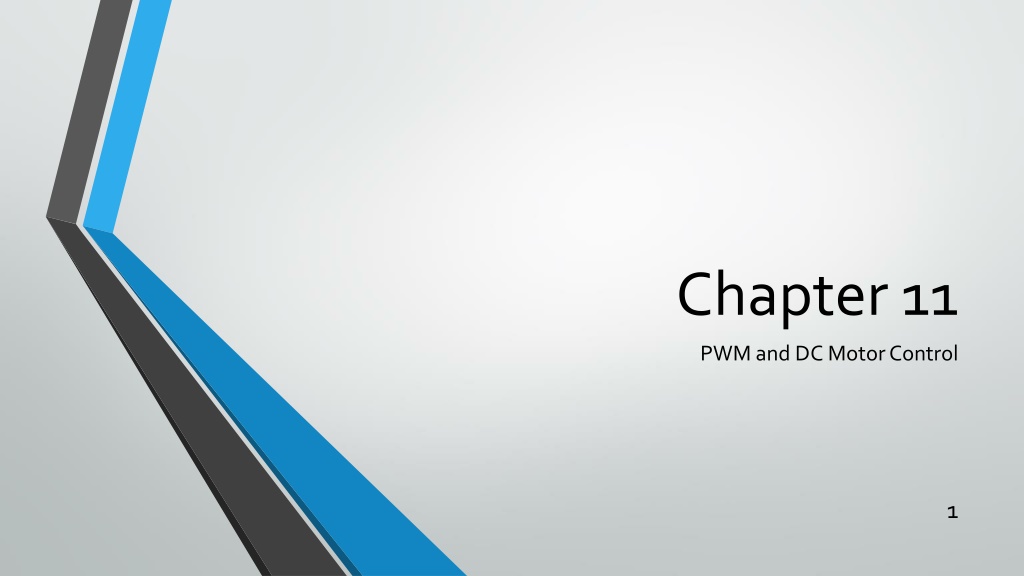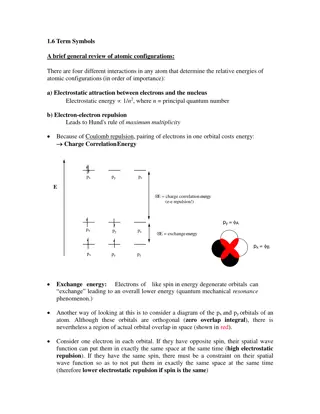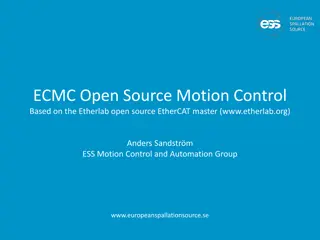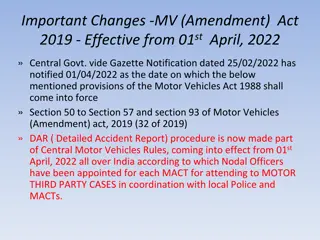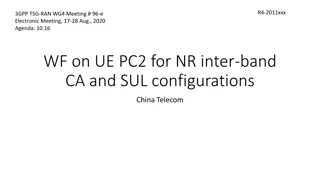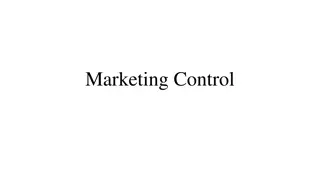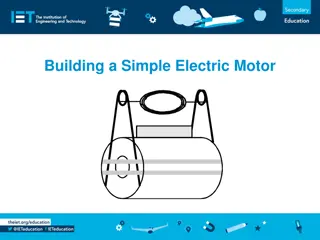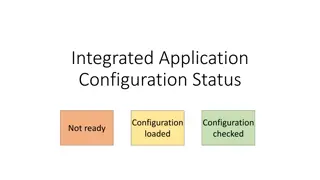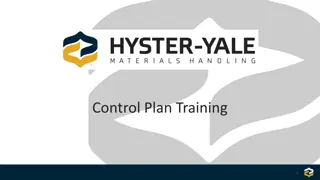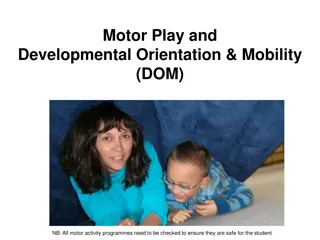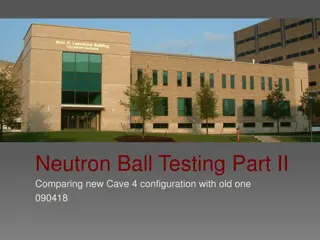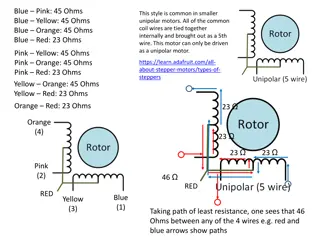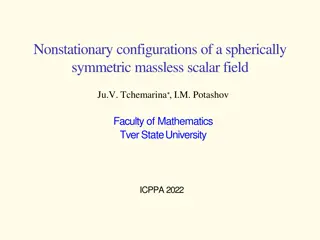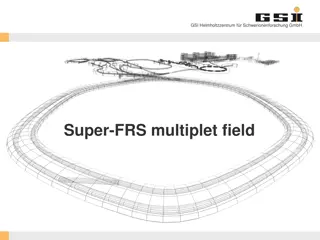DC Motor Control Techniques and Configurations
This chapter delves into various aspects of PWM and DC motor control, exploring characteristics of selected DC motors, rotation mechanisms, H-bridge configurations for motor direction control, logic configurations for motor operation, bidirectional motor control using an L298 chip, pulse width modulation comparison, and different transistor connections for DC motor control. The content also covers registers related to motor control in electronic systems.
Uploaded on Nov 12, 2024 | 0 Views
Download Presentation

Please find below an Image/Link to download the presentation.
The content on the website is provided AS IS for your information and personal use only. It may not be sold, licensed, or shared on other websites without obtaining consent from the author.If you encounter any issues during the download, it is possible that the publisher has removed the file from their server.
You are allowed to download the files provided on this website for personal or commercial use, subject to the condition that they are used lawfully. All files are the property of their respective owners.
The content on the website is provided AS IS for your information and personal use only. It may not be sold, licensed, or shared on other websites without obtaining consent from the author.
E N D
Presentation Transcript
Chapter 11 PWM and DC Motor Control 1
Selected DC Motor Characteristics (http://www.Jameco.com) Part No. Nominal Volts Volt Range Current RPM Torque 154915CP 3 V 1.5 3 V 0.070 A 5,200 4.0 g-cm 154923CP 3 V 1.5 3 V 0.240 A 16,000 8.3 g-cm 177498CP 4.5 V 3 14 V 0.150 A 10,300 33.3 g-cm 181411CP 5 V 3 14 V 0.470 A 10,000 18.8 g-cm 2
H-Bridge Motor Counterclockwise Configuration 6
Some H-Bridge Logic Configurations Motor Operation Off Clockwise Counterclockwise Invalid SW1 Open Closed Open Closed SW2 Open Open Closed Closed SW3 Open Open Closed Closed SW4 Open Closed Open Closed 8
Timer Status and Control (TPMx_SC) Register Field Bits Description PS 0 2 In the prescaler, the clock is divided by 2PS. CMOD 3 4 Clock Mode Selection CPWMS 5 Center-aligned PWM select (0: Up counter mode, 1: up-down counter mode). Time Overflow Interrupt Enable (0: Disabled, 1: Enabled). Timer Overflow Flag TOIE 6 TOF 7 DMA 8 DMA Enable (0: Disabled, 1: Enabled) 15
TPMxCnSC Register Field Bit Description CHF 7 Channel Flag CHIE 6 Channel interrupt enable MSB and MSA 5-4 Channel mode select ELSB and ELSA 3-2 Edge or Level Select DMA 0 DMA enable (0: Disabled, 1: Enabled) 19
Edge-Aligned PWM (notice bit CPWMS=0) CPWMS MSnB:MSnA ELSnB:ELSnA Mode Configuration 0 10 10 Edge-Aligned PWM (non-inverted) Edge-Aligned PWM (inverted) Set output on reload, clear output on match 0 10 01 or 11 Clear output on reload, set output on match 21
The PWM output for MOD = 8, CnV = 5, ELSB:ELSA = 10 (non-inverted) 22
Center-Aligned PWM (notice CPWMMS=1) CPWMS MSnB:MSnA ELSnB:ELSnA Mode Configuration 1 10 10 Center-Aligned PWM Clear output on match-up, set output on match-down 1 10 X1 Center-Aligned PWM Set output on match-up, clear output on match-down 24
The PWM output for MOD = 7, CnV = 4, ELSB:ELSA = 10 (non-inverted) 25
Deadband 27
